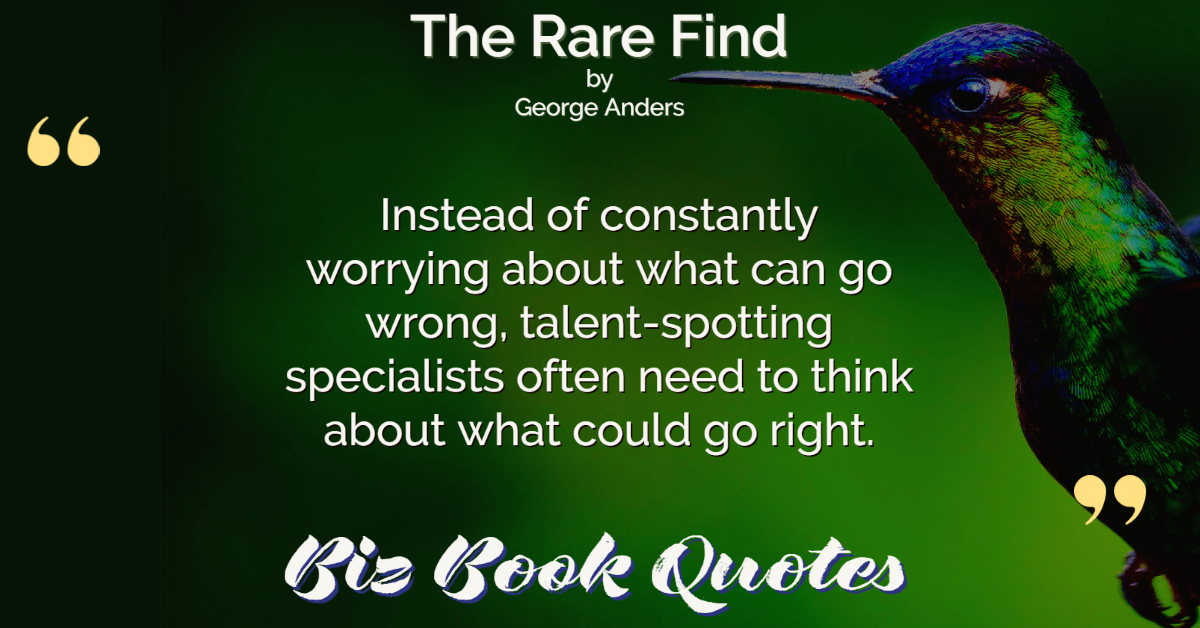 |
[Talent]… is a natural ability to do something better than most people can do it… And it is innate; you’re born with it, and if you’re not born with it, you can’t acquire it.
|
21 |
 |
If talent means that success is easy or rapid, as most people seem to believe, then something is obviously wrong with a talent-based explanation of high achievement.
|
62 |
 |
Some people regard [talent] as a God-given gift; others see talent as something built up via hard work and disciplined training. Either way, the ability to pick the right people isn’t out of reach for anyone.
|
8 |
 |
If talent spotters want to create a great organization, they must aim higher.
|
10 |
 |
Instead of constantly worrying about what can go wrong, talent-spotting specialists often need to think about what could go right.
|
11 |
 |
Mismatched time horizons also help perpetuate close-minded, glib approaches to talent.
|
43 |
 |
When organizations become hazy about what they want from high-talent jobs, different penalties arise: short-lived, inconsistent – and expensive – hires.
|
44 |
 |
In big organizations especially, the notion of hunting for talent in quirky ways evokes shudders. Formulaic conformity feels safer.
|
87 |
 |
…it’s easy to say that [fringe] candidates aren’t worth the time it would take to assess them. Yet… ignoring all of these outsiders can mean squandering access to a vast amount of talent.
|
128 |
 |
Figuring out how to catch those early stirrings of promise is a marvelous, maddening obsession for any organization that wants to win in the talent hunt.
|
131 |